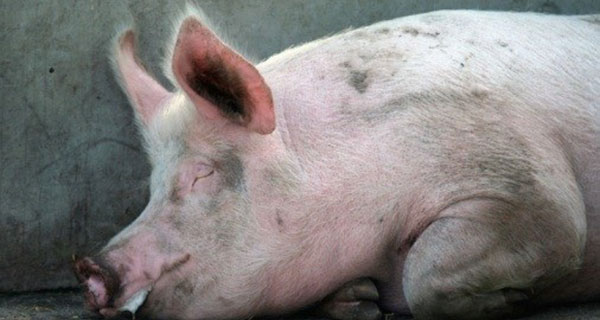 Relations between China and Canada have never been more uncertain, particularly because Canada looks like it’s being run by diplomatic amateurs. And the news may get worse for the agri-food community.
Relations between China and Canada have never been more uncertain, particularly because Canada looks like it’s being run by diplomatic amateurs. And the news may get worse for the agri-food community.
The Chinese claim Canada arrested Huawei executive Meng Wanzhou in Vancouver in December at the request of the United States. The U.S. alleges Meng was involved in fraud involving U.S. sanctions on Iran. The Chinese claim Canada arrested her in order to gain favour with the Americans, without legal justification.
The government of Prime Minister Justin Trudeau has insisted that the decision to arrest Meng, and the impending extradition to the U.S., is non-political.
But the SNC-Lavalin affair, which has made headlines around the world, shows the federal government in a different light. It suggests the government is willing to meddle in judicial proceedings, despite denials of such complicity in the Meng case.
These incidents couldn’t have happened at a worse time.
With over 1.3 billion people, China represents a potent market for the Canadian agri-food sector. That was obvious in Canada’s 2016 trade talks with China and in November 2018, the two countries agreed to double agricultural trade by 2025.
But China is now blocking shipments of canola oil. It may be the tip of the iceberg.
Canada exports roughly $7 billion in agricultural commodities and products to China a year, and we’re not even close to being a top trading partner with the Asian giant. But Canada is China’s largest exporter of canola oil (until now), seeds and meal, dried peas, flax and durum, the second largest supplier of barley and one of the most important supplier of pork products. This is what China knows about Canada. And we can do even better.
However, African swine fever has hit China’s hog sector. It may be the year of the pig in China, but this isn’t what they envisioned. China’s massive hog industry produces almost 800 million pigs a year. But the highly-contagious disease is affecting herds in China, Vietnam and elsewhere across Asia. Almost a million pigs have been culled due to the disease over the last several months and the situation still isn’t under control.
Peasant farmers feeding their animals scraps are largely to blame and large high-tech facilities in China have resisted the outbreak so far. But everyone is on edge because African swine fever is the most severe disease known to impact pigs and there’s no remedy. Even if the fever poses no danger to human health, it’s a serious threat to animals. The virus can remain in meat that’s been frozen for three years.
China is the largest pork market in the world. It even has a strategic reserve of frozen pork. This is how seriously the Chinese take their pork.
And as tensions mount between Washington and Beijing, impacting U.S. pork sales to China, a great opportunity could await Canadian hog producers. Canada produces more than 20 million pigs a year and more than 70 per cent of our production is exported. Quebec alone produces more pigs in a year than it has people.
So the Canadian hog industry wants to do more business with China.
But it may have to wait, thanks to tense diplomatic circumstances and African swine fever.
The presence of swine fever in Canada would cause immediate border closures, similar to what we experienced with mad cow disease in 2003. And biosecurity experts say there’s a real chance the fever could arrive in Canada and the United States within a year. It can spread through feed and Canada imports pork from all over the world. If Canada finds one case, trading would cease and many hog producers here would face bankruptcy.
The Chinese government is trying to address the biosecurity issues that result from China’s prevalent backyard farming. And the spread of the disease has made Chinese consumers switch to beef, even if there are no African swine fever safety risks for humans.
All of this has pushed up hog futures, meaning that bacon, ribs and ham could be more expensive in Canada as early as mid-summer. Cattle futures, on the other hand, have dropped. So if you’re a pork eater, African swine fever could well drive up your grocery bill.
Our diplomatic problems with China may not be all bad news. If we had already increased exports to China, our $4.5-billion hog industry would be even more vulnerable.
But once the outbreak ends and African swine fever recedes, it remains to be seen whether China even wants our business. You can blame that on the federal government’s missteps.
Dr. Sylvain Charlebois is senior director of the agri-food analytics lab and a professor in food distribution and policy at Dalhousie University.
Sylvain is a Troy Media Thought Leader. Why aren’t you?
For interview requests, click here. You must be a Troy Media Marketplace media subscriber to access our Sourcebook.
The views, opinions and positions expressed by columnists and contributors are the author’s alone. They do not inherently or expressly reflect the views, opinions and/or positions of our publication.


